Fresh off winning the 2016 Ultra4 season championship doesn’t seem like the time you would make major changes to your vehicle, but Jason Scherer has never been one for convention. Since building his single-seat buggy — dubbed “The Gavel” — in 2014, Scherer has seen victory, but also his fair share of adversity. He and his Rage 4th friends have continuously refined The Gavel in an effort to make the car faster and more reliable. It is those efforts that produced podium finishes at the 2016 King of the Hammers, MetalCloak Stampede, Nitto Ultra4 Nationals and a victory at the Carbon Fallon 250.
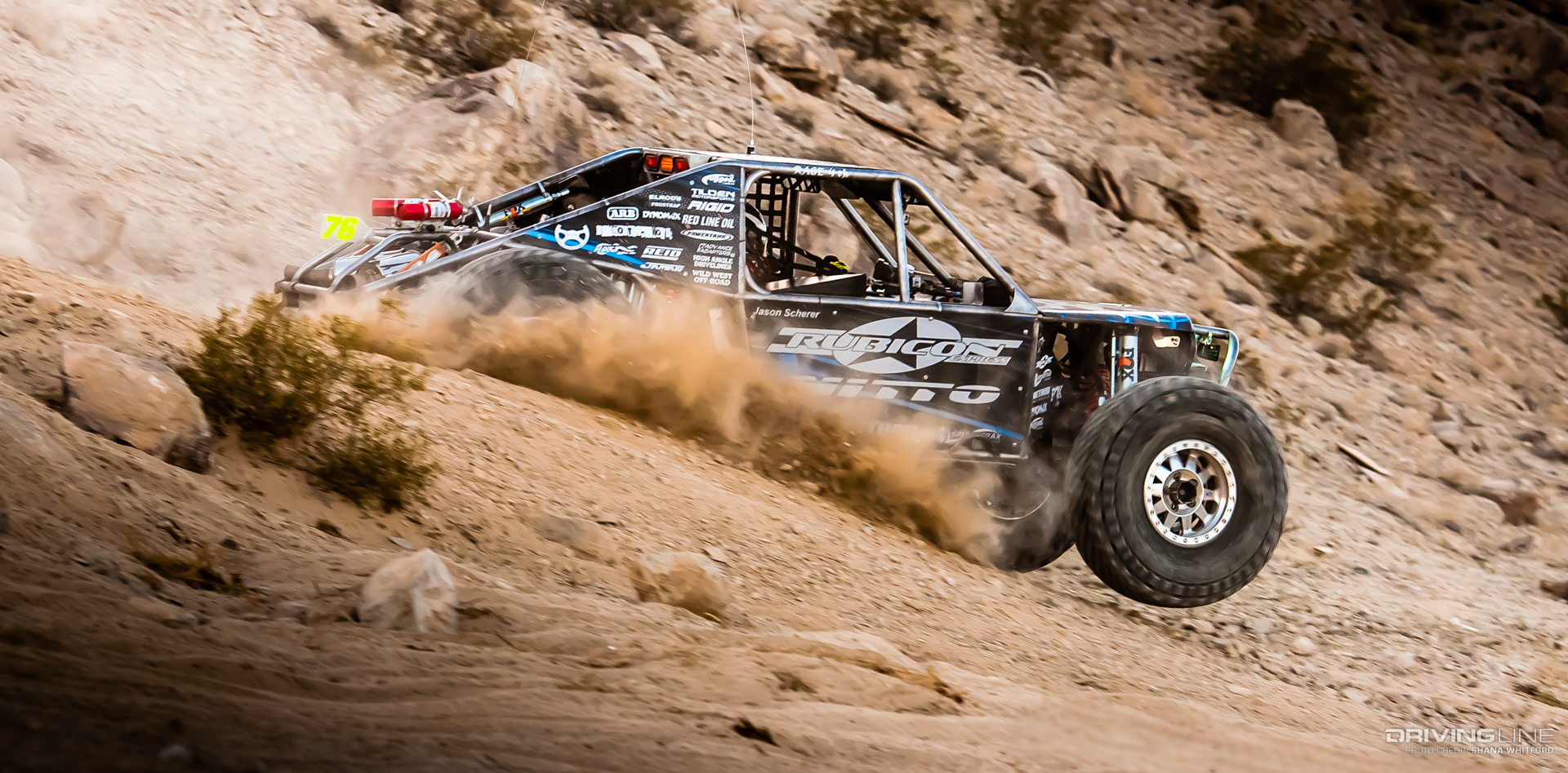
Scherer is after the big prize, though: winning the 2017 Nitto King of the Hammers race. He has tasted the sweet victory of being King before, winning the 2009 edition of the race, and he wants to join repeat winners Erik Miller, Shannon Campbell, Loren Healy and Randy Slawson. Who wouldn’t want to be part of a club with these as its members? To reach his goal, Scherer is teaming up with co-driver Jason Berger again, reassembling the team that took the KOH victory in 2009. There is only one little problem: The Gavel only has one seat.
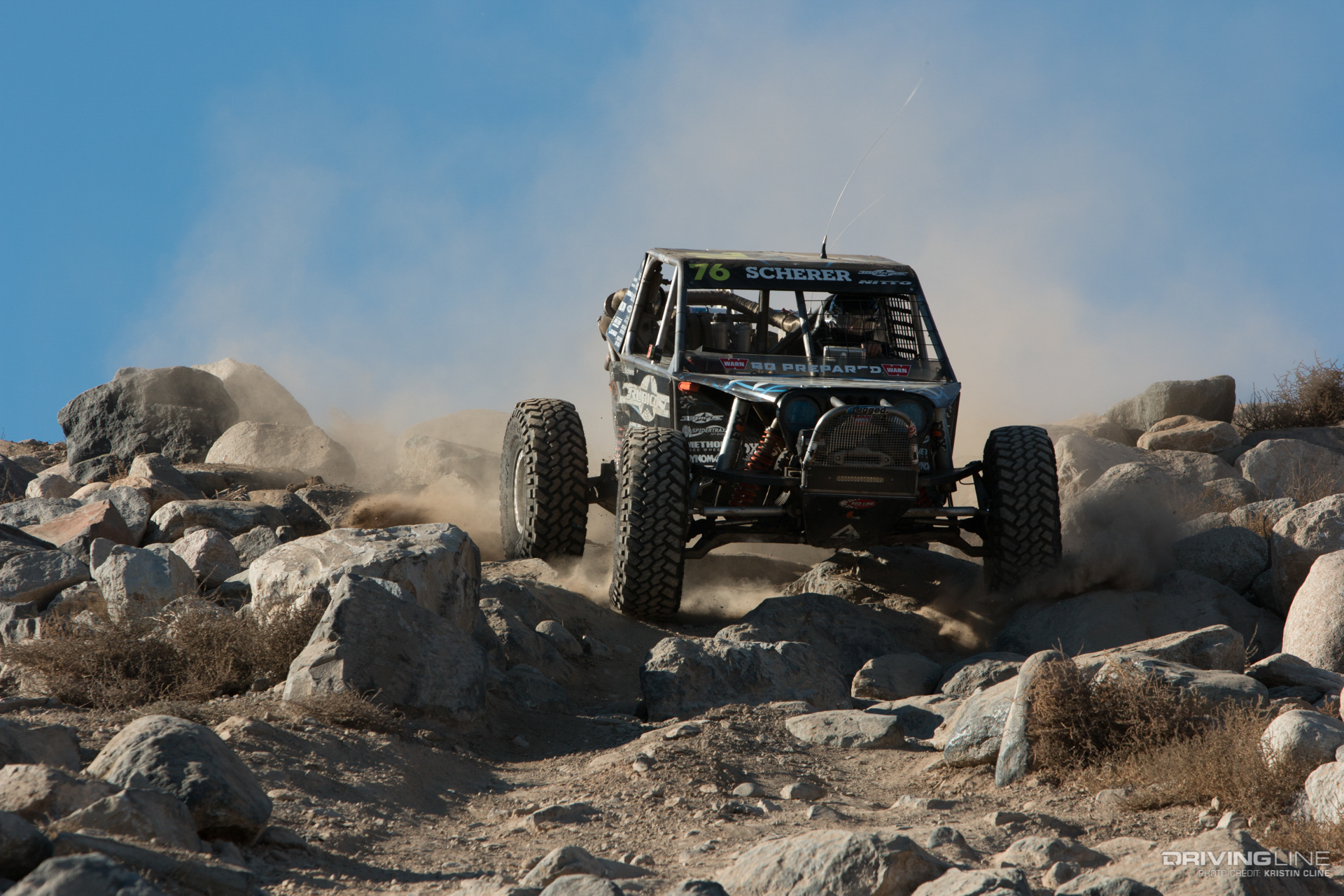
Turning a single-seat vehicle into a two-seater is not a trivial task.
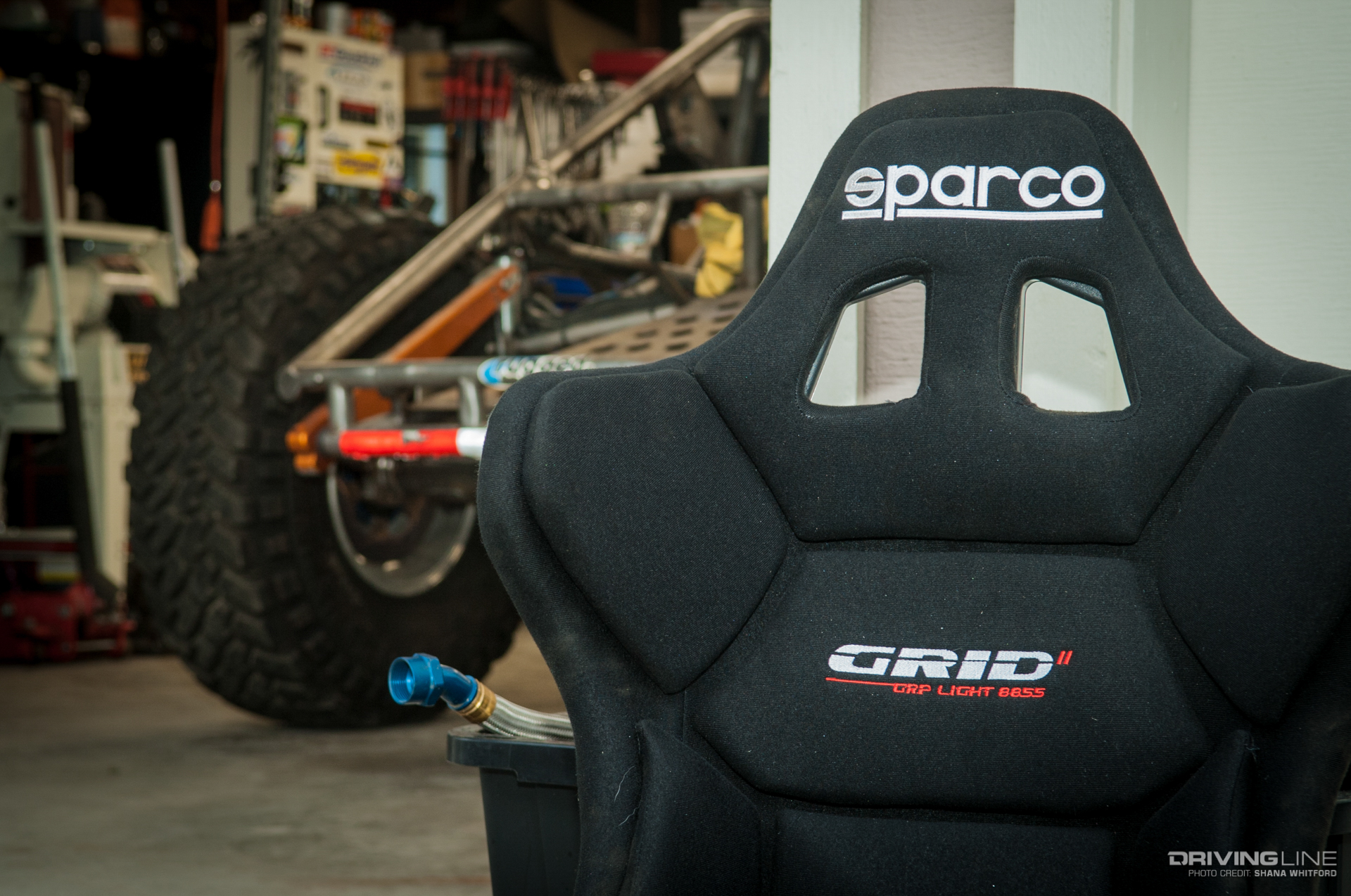
“Dan Trout pleaded with me to let him build a new chassis, but that wasn’t a viable option in terms of time or finances, and we have so much invested in perfecting the current car,” Scherer admitted. “The chassis is plenty wide for two seats, but we had to relocate the radiator from the passenger compartment to behind the front seats.”
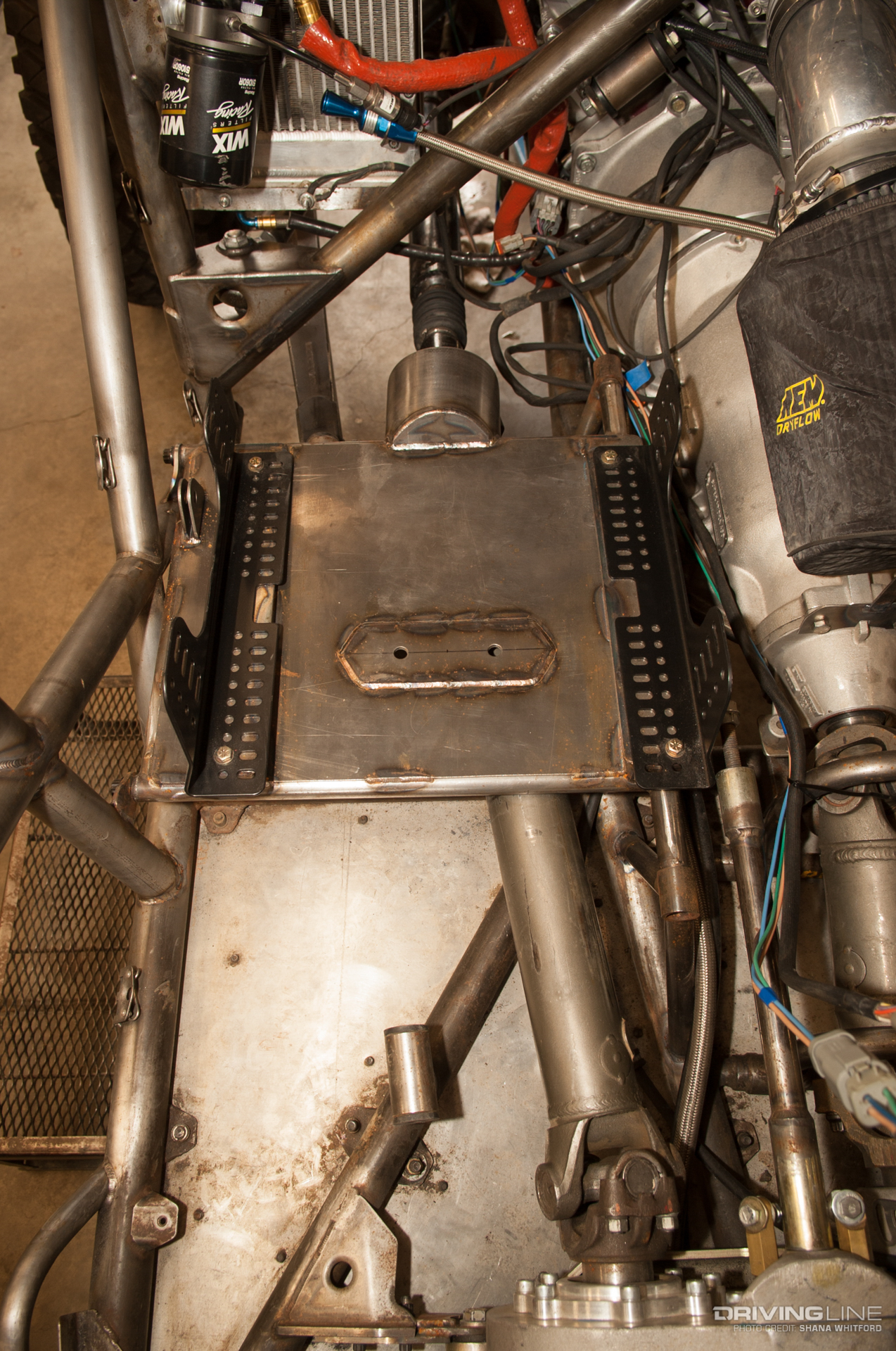
The side-mounted radiator was a Scherer calling card — one of those thoughtful, deliberate decisions he made to improve The Gavel’s aerodynamics and center of gravity.
“I figure I am on a level playing field now with guys like Shannon and Loren who already had radiators mounted up high behind the cockpit.”
Adding a second Sparco seat takes more than just relocating a radiator, though. In typical Scherer fashion, there is more to this than meets the eye, and every detail was considered.
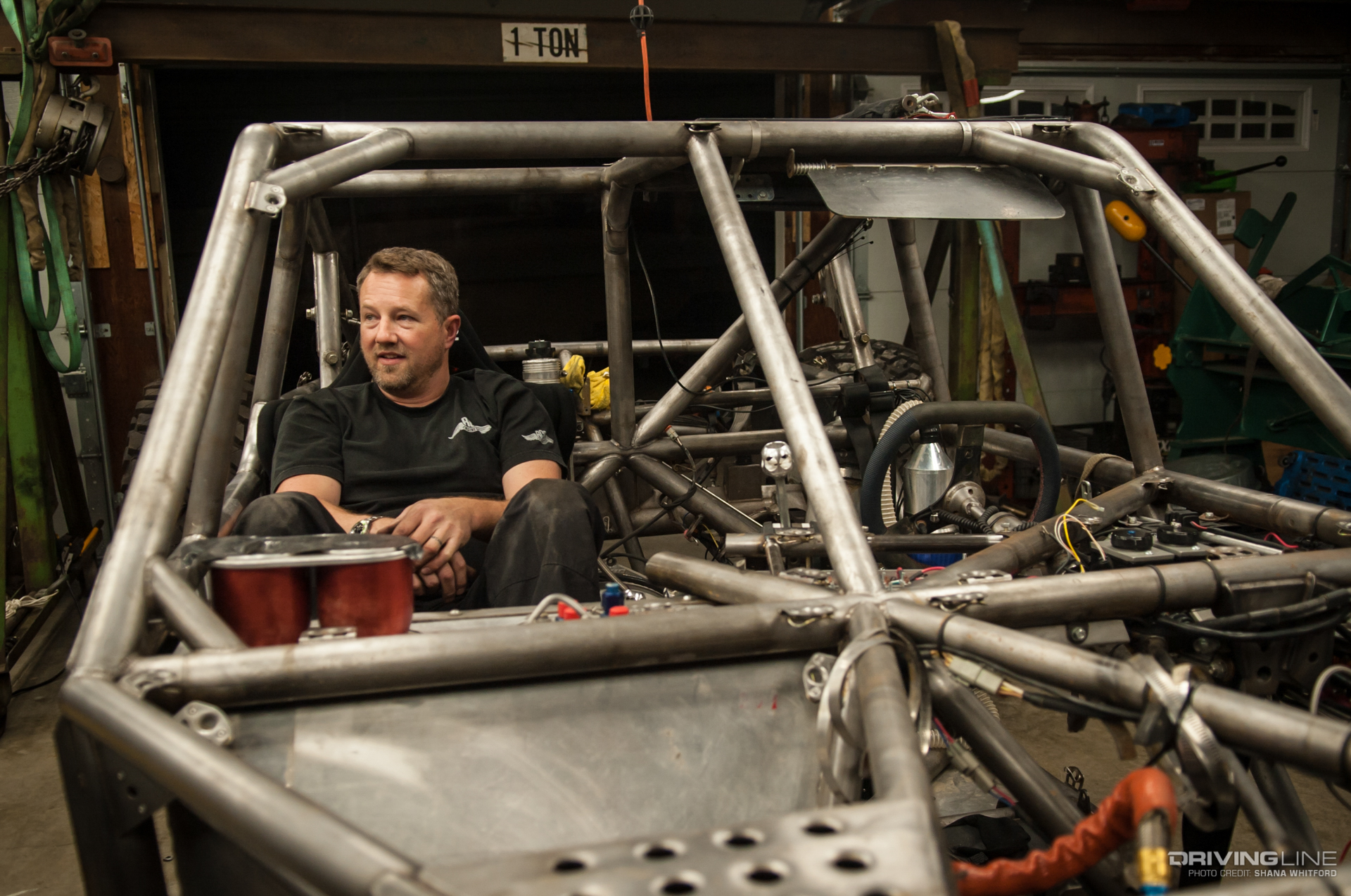
“I bought a Brown and Miller Racing Solutions hose crimper when we originally built the car, and this will give us an opportunity to build all-new hoses and keep the current hoses as race spares.” The Lowrance GPS was relocated and a Rugged Radios intercom and fresh-air system were added to interface with Berger’s helmet.
Another major addition to the car is the Safecraft fire-suppression system.
“Safety is such a huge issue,” Scherer stressed. “Fire extinguishers can come flying off over rough terrain, and even if they don’t, the powder can get packed down as you travel over bumps, limiting their effectiveness. The Safecraft system addresses all of that by using 3M’s Novec 1230, which has the added benefit of not ruining everything it touches like dry chemicals can. Even Safecraft’s mounts are better than everything else out there; I am using them for my spare fuel pump and driveline mounting now.”

All of this to make room for former co-pilot and current CrossFit fanatic Jason Berger.
“As race day approaches, we will control the things we can control, like our safety, our fitness. Everything else is wide open when the green flag drops, so it’s pointless to worry about it.”
After navigating Scherer to victory in 2009, Berger eventually found himself without a seat when Scherer campaigned a single-seat car. But Berger stayed involved in Ultra4 racing, co-driving with JT Taylor in their win at the 2011 Ultra4 Stampede and later navigating for, and mentoring, Wayland Campbell. Campbell and Berger took fourth place at the 2014 King of the Hammers, which was followed by Wayland moving into a single-seat car as well, and Berger was without a ride again.
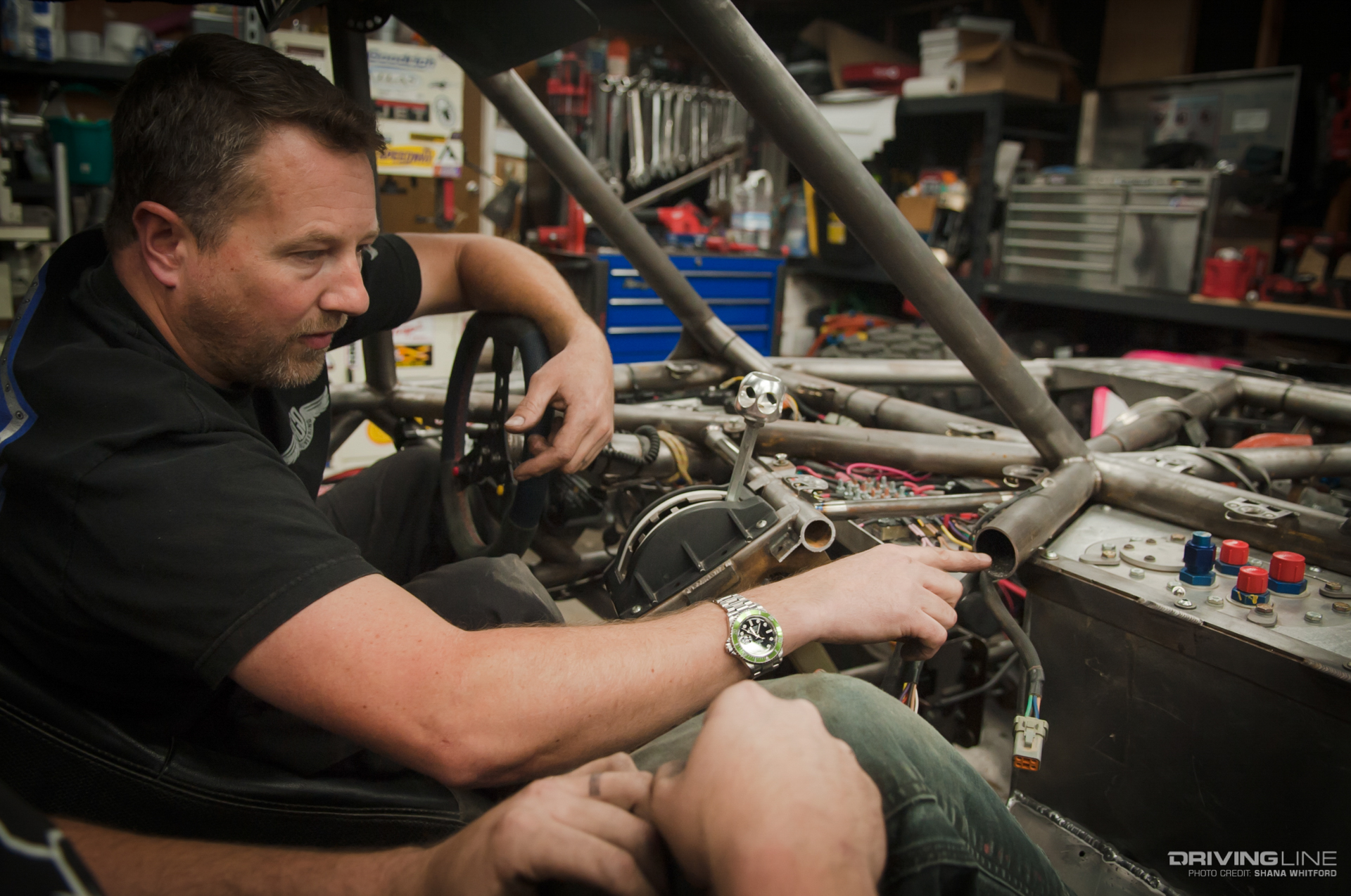
Now he’s back where he started: sitting next to Jason Scherer.
“It is such an honor to be a part of these two teams. They are there to win, and I take the opportunity to be a part of their teams very seriously.”

The battle between solid-axle and IFS Ultra4 cars gets played up a lot, but the distinction between single-seat and two-seat vehicles is just as critical — we dare say even more important. History has shown us that a co-driver is a critical piece of the puzzle when it comes to winning in Johnson Valley. After 10 years, Shannon Campbell is the only person to win KOH in a single-seat buggy.

“It isn’t a big deal at the short-course races,” Scherer explained, “but at King of the Hammers, I am at a disadvantage without a co-driver to navigate and pull some Warn winch cable.”
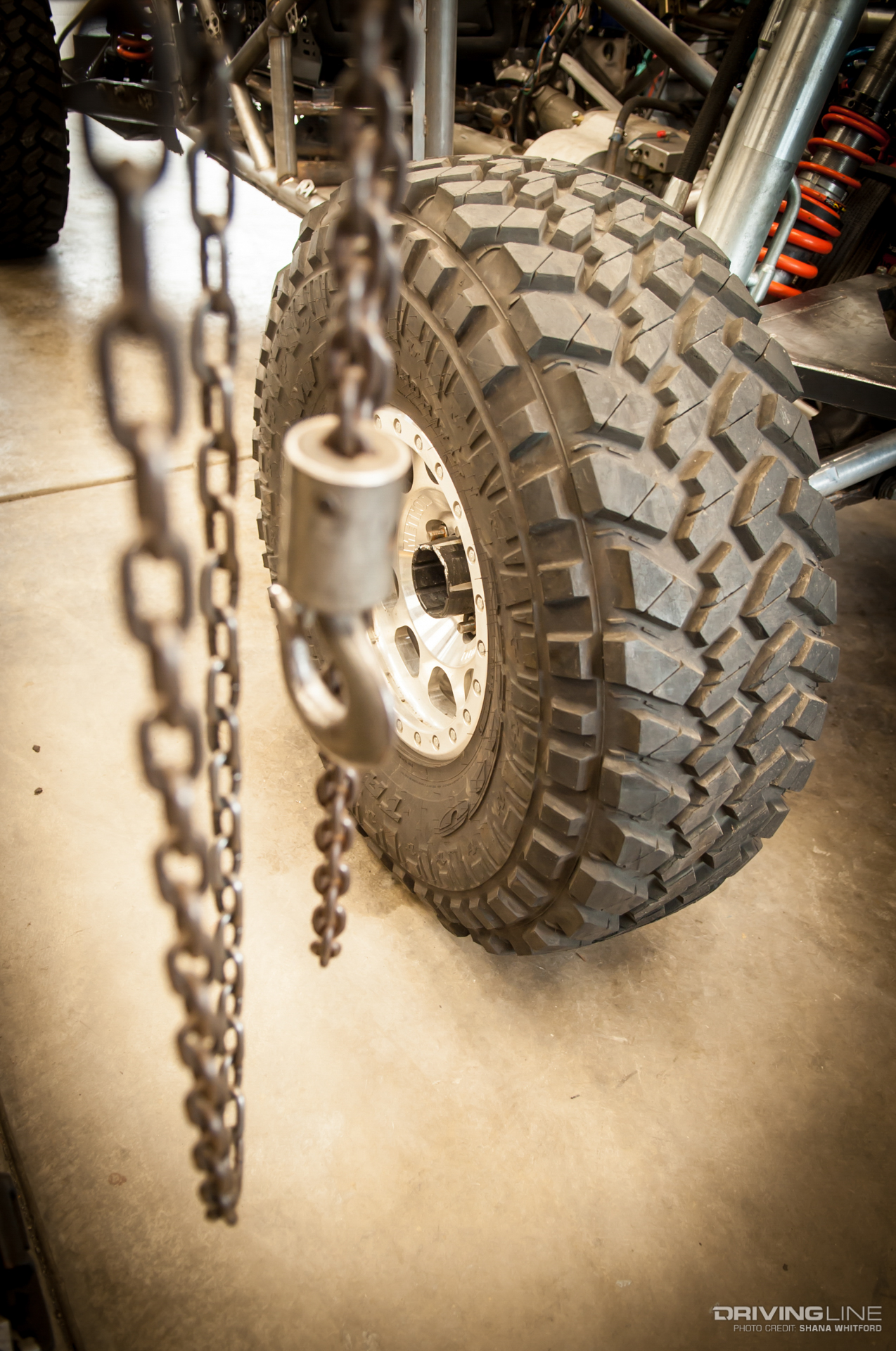
While Scherer is clearly focused on KOH, he hasn’t let that keep him from looking further into the future. He intends to run the entire Trail-Gear Western Regional Series in addition to King of the Hammers.
“The new race in Texas has 90-mile long laps,” Scherer explained. “And Fallon is a desert race with long laps, too, and runs into the night.” These are compelling reasons to have a navigator in the car.
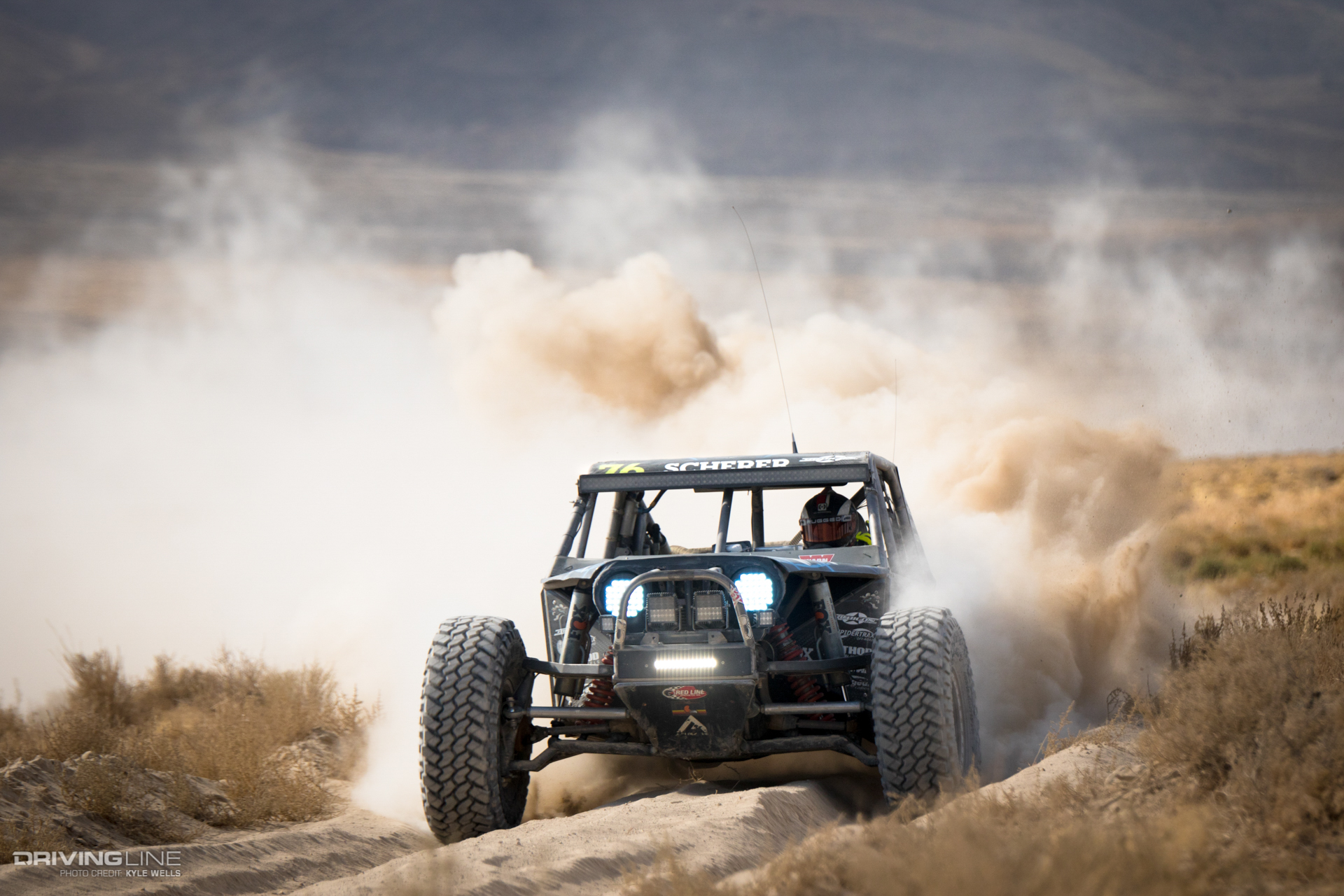
“The MetalCloak Stampede and Nitto Ultra4 Nationals are the only short-course races on the schedule for me for 2017, but I have a plan for that as well.”
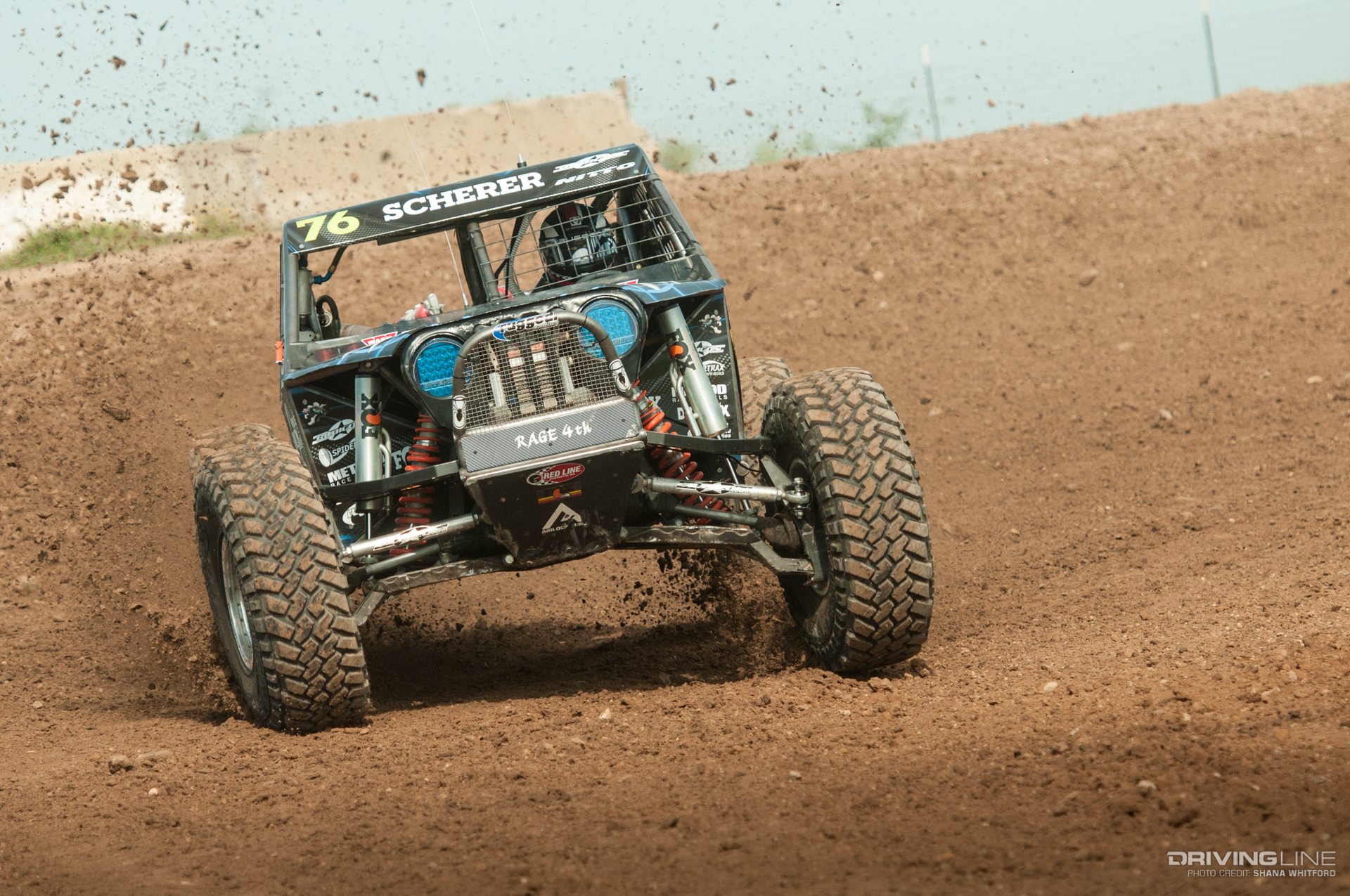
All of the modifications being performed to the car are modular, allowing it to be returned to a single-seat design during race prep.
“It isn’t particularly easy,” Scherer confessed, “but I think that it will be worth it. The competition is so fierce these days that we have to do everything we can in order to get an advantage. I honestly think that I have the best volunteer crew in Ultra4 racing; these are guys that I have wheeled with for years, but I ask a lot of them. Safecraft has really stepped up to help also. In addition to keeping us safe on race day, they are providing shop space and resources to get the car prepped for every race.”
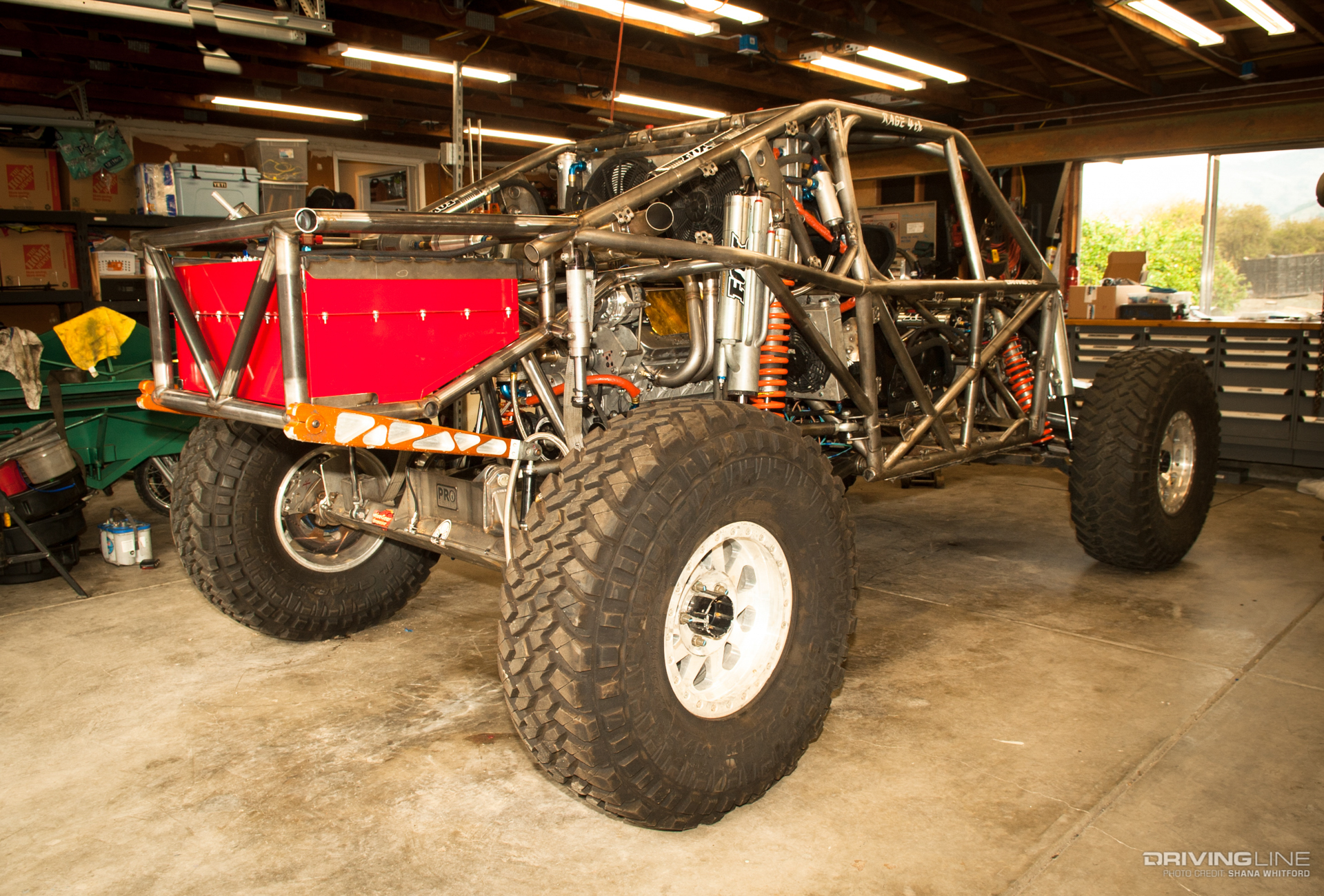
That prep includes not only changing from a two-seat to single-seat configuration but also removal and inspection of the CVs, transmission and rear differential between races.
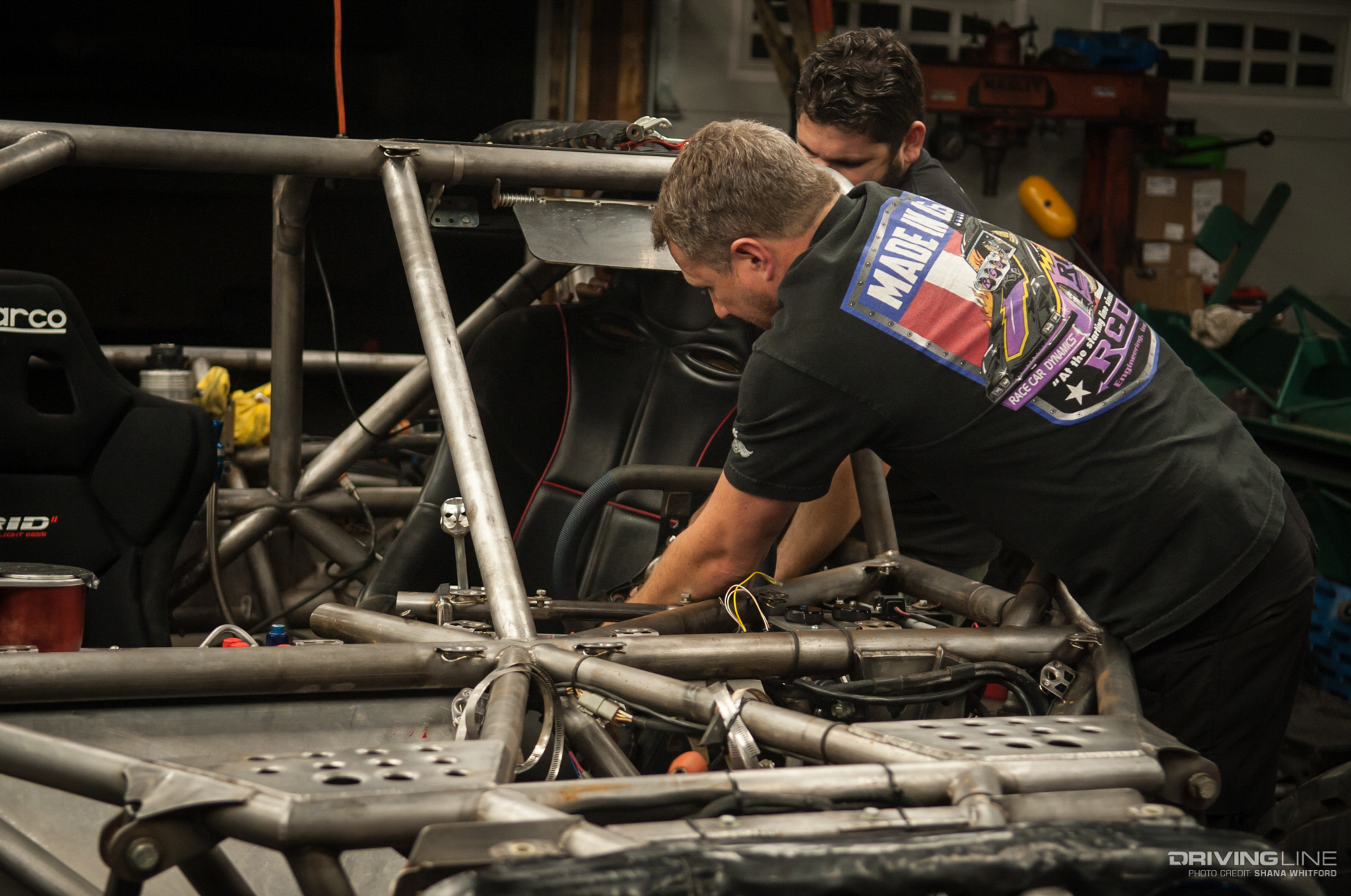
Those tasks are standard issue for top Ultra4 teams, but Scherer has one other trick up his sleeve: a second engine.
“Tilden Motorsports built us a high-horsepower engine to help make passes on short-course tracks,” Scherer revealed, “but we also have a milder, torquey LS engine for races like King of the Hammers.”
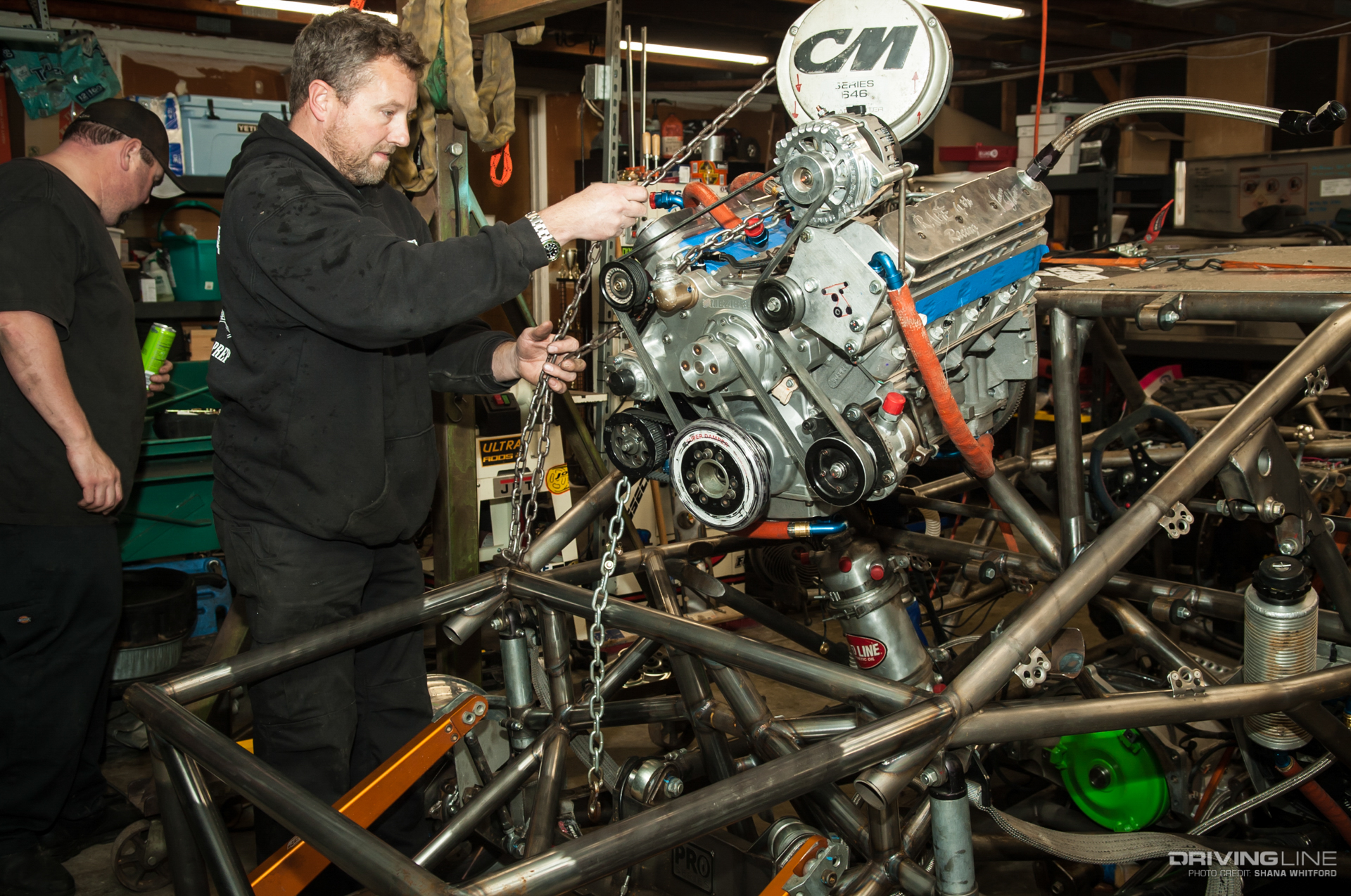
In addition to being more reliable for longer races, the second engine builds less heat, an important factor given the radiator constraints. When using the high-horsepower engine in the single-seat configuration, Scherer intends to run both radiators to ensure the car stays cool. If The Gavel stays cool, and Scherer keeps his cool, these extra efforts could very well allow the 2016 Ultra4 season champion to add more trophies to his crowded mantle.
(Photos: Shana Whitford, Doug Dienelt, Kyle Wells, Kristin Cline)